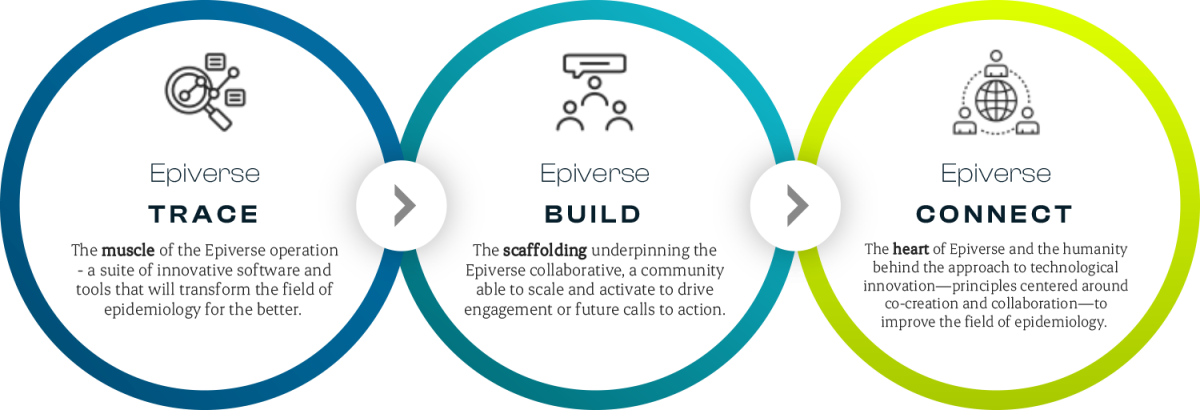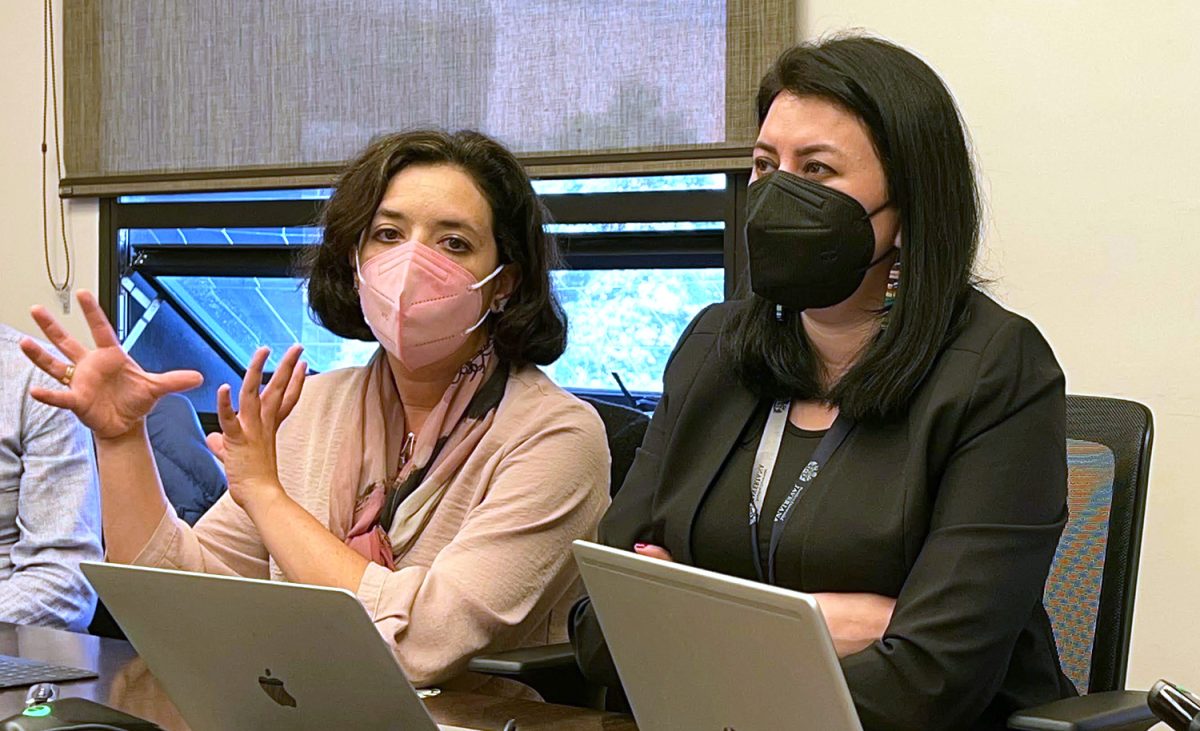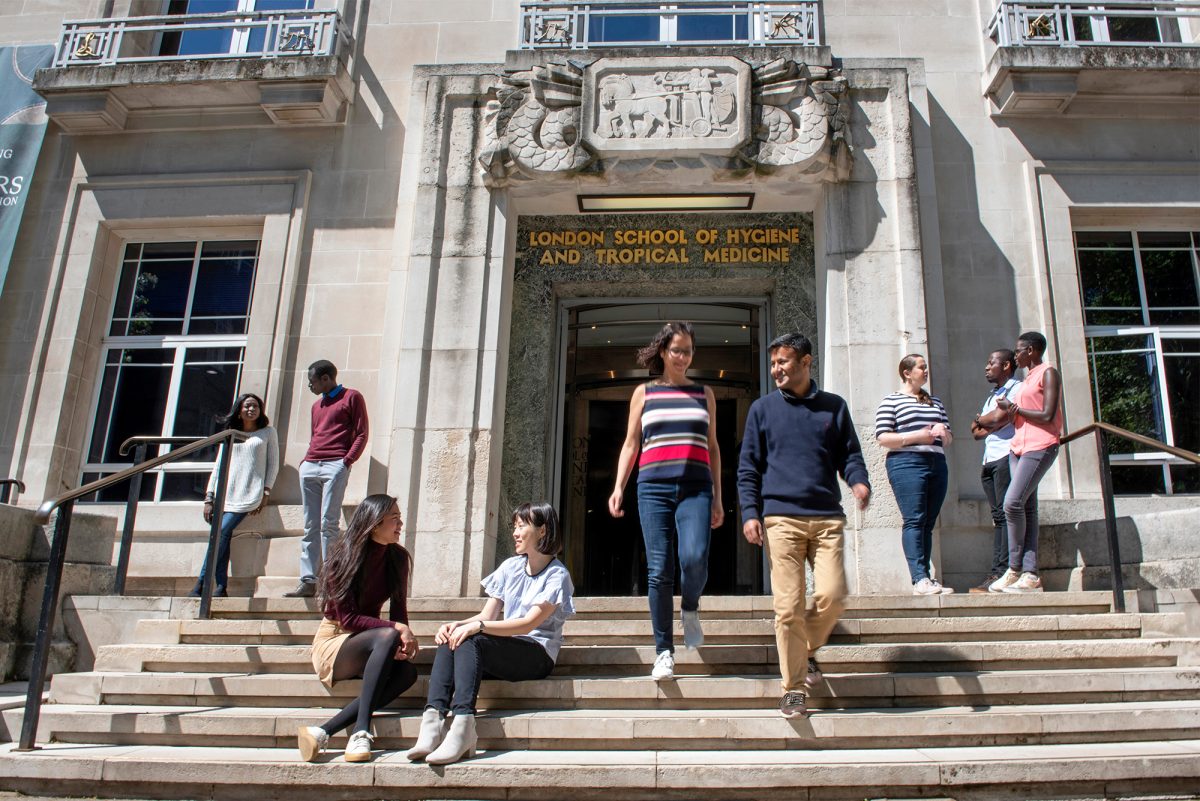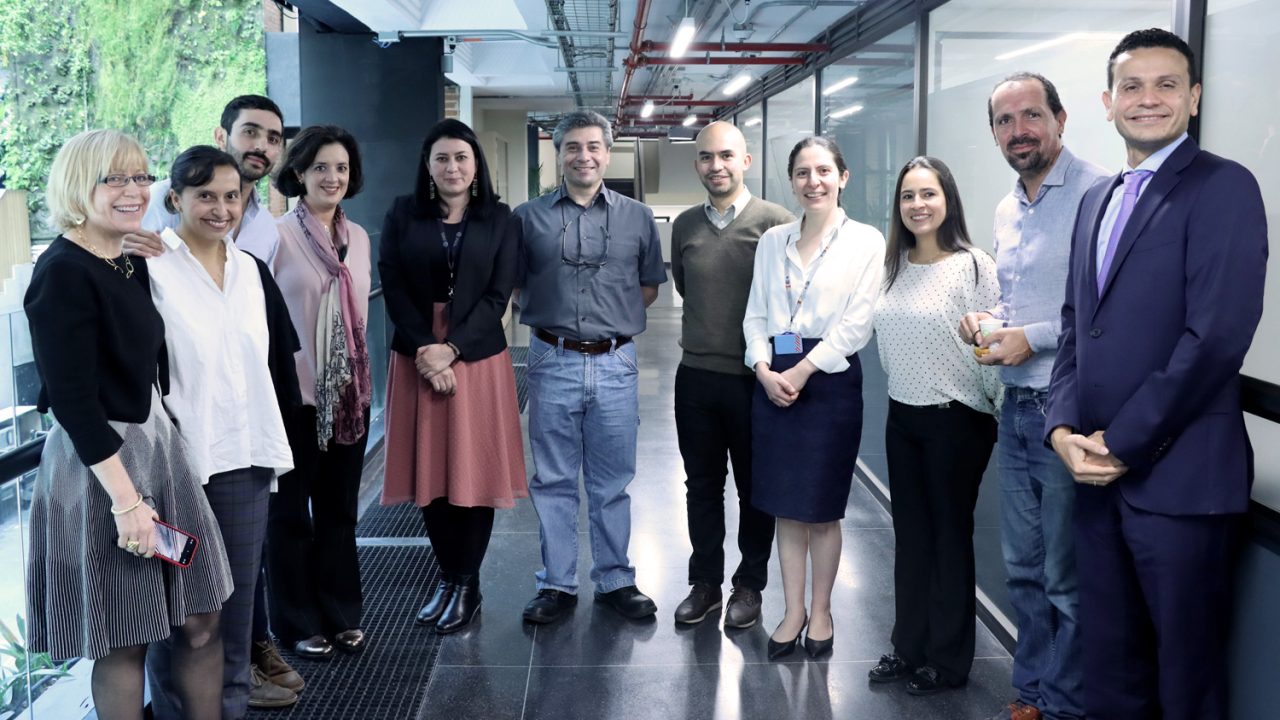Prior to the onset of COVID-19, epidemiologists around the world lived with the fear that a global pandemic would expose serious gaps in infectious disease response. In short, they were right.
Not only did existing tools fail to offer the speed and precision necessary to slow the spread of the virus, but COVID-19 also exploited a key flaw in our health systems – they are simply not designed for everyone to get sick at once. All over the world, epidemiologists were desperate for accurate, timely data and analytic software. In response, they built customized tools and models that aided localized efforts but failed to offer a coordinated and equitable global response.
Though the pandemic looks very different from region to region today, timely, accurate data and globally interoperable software remain crucial elements for epidemic preparedness and response. And yet, most epidemiologists are still left to operate without them.
Enter Epiverse
Last fall, data.org launched Epiverse with a commitment to creating a more connected and informed epidemiological community geared toward disrupting global health inequities. The initiative grew from deep-dive discussions with stakeholders in public health, data science, data privacy, and open-source software who collectively identified the need for a global initiative dedicated to empowering the teams working tirelessly to respond to current epidemics and prepare for future ones.
Since then, we’ve centered our work around the widely recognized Digital Development Principles to deliver on Epiverse’s three key pillars:

- Epiverse TRACE – a digital public good of interoperable software and tools that will globally transform epidemic response
- Epiverse BUILD – opportunities for inclusive, interdisciplinary co-creation and design on some of the field’s biggest challenges and inhibitors of progress
- Epiverse CONNECT – the global community sustaining the data-driven technology committed to innovation and global health equity
TRACEing the Root of the Problem
Epiverse TRACE addresses a wide range of needs in global infectious disease response to better understand and prepare for the evolution of an outbreak. Our tools will focus on everything from viral outbreak reconstruction to long-term forecasting. TRACE will also create game-changing opportunities for field epidemiologists with academic institutions, social impact organizations, and ministries of health alike to use data to better explain the past, understand the present, and envision the future.
Data is often collected in different formats creating technical barriers to entry and inflexibility across different software tools. However, TRACE tools will eliminate that by interpreting data derived from common digital public goods – software used by community health workers to collect data from the field – as well as data obtained from health information systems and government bodies. This interoperability will allow teams from around the world to communicate efficiently and effectively and is essential for a coordinated global response. Looking ahead—and leveraging future partnerships and collaborations—we aim to paint a more complete and accurate epidemiological picture by incorporating non-traditional data, like commercial and environmental data, using privacy-preserving technology.

Some of this work is well underway. Our inaugural TRACE partners at The London School of Hygiene and Tropical Medicine (LSHTM) are currently focused on developing and testing tools in data cleaning, short-term outbreak reconstruction, and long-term forecasting/modeling. Their colleagues at LSHTM’s Medical Research Council Unit in the Gambia have also partnered with us to increase access in the region and ensure that data science tools are inclusive and relevant to low-to-middle income countries. Most recently, we launched a two-pronged approach in Colombia to strengthen epidemic response. The University of Javeriana is focused on enhancing service delivery tools deployed in field epidemiology, and the University of Los Andes is developing interoperable decision-making tools for response management.
Meet our current Epiverse TRACE partners and leads
Bubacarr Bah, Ph.D.
Associate Professor and Head of Data Science
Medical Research Council Unit The Gambia at the London School of Hygiene & Tropical Medicine
Bubacarr Bah has recently been appointed as Associate Professor and Head of Data Science in the Medical Research Council (MRC) Unit – The Gambia, at the London School of Hygiene & Tropical Medicine.
Read moreAnna Carnegie is currently the Community Manager for the Epiverse initiative at LSHTM and MRC Unit The Gambia, which aims to fundamentally change how analytics are used in the global infectious disease response, moving towards scalable, community-driven software.
Read moreJuan Manuel Cordovez, Ph.D.
Vice-Dean of Research and Innovation of the School of Engineering, Director of the Bio-mathematical Research Laboratory (BIOMAC)
Universidad de los Andes (Uniandes)
Juan Manuel Cordovez is the Vice-dean of Research and Innovation of the school of engineering, director of the Bio-mathematical research laboratory (BIOMAC) at Los Andes University, and Associate professor of the Department of Biomedical Engineering.
Read moreZulma M. Cucunubá, MD, MSc, Ph.D.
Director of the Public Health Institute
Pontificia Universidad Javeriana (Javeriana)
Zulma M. Cucunubá is an Assistant Professor of Infectious Disease Epidemiology at Universidad Javeriana in Bogotá, Colombia.
Read moreDr. Rosalind Eggo
Associate Professor of Epidemiology and Population Health
London School of Hygiene & Tropical Medicine
Dr. Rosalind Eggo is the Associate Professor of Epidemiology and Population Health at the London School of Hygiene & Tropical Medicine and works as an infectious disease modeller in public health epidemiology.
Read moreSebastian Funk, Ph.D.
Professor of Infectious Disease Dynamics
London School of Hygiene & Tropical Medicine
Sebastian Funk is the Professor of Infectious Disease Dynamics at the London School of Hygiene & Tropical Medicine. His research revolves around statistical methods, often using mathematical models of infectious disease dynamics, applied to questions around public health.
Read moreCatalina González-Uribe, MA, MSc., Ph.D.
Director of Internationalization at the Vice Presidency of Research and Creation and Associate Professor at the School of Medicine
Universidad de los Andes (Uniandes)
Catalina González-Uribe is an associate professor at the Faculty of Medicine in the Public Health and Epidemiology area and the Director of Internationalization at the Vice presidency of Research and Creation.
Read moreDr. Thibaut Jombart is a researcher in outbreak analytics, with a background in biostatistics, population genetics, and R programming.
Read moreDr. Adam Kucharski is a Professor and Sir Henry Dale Fellow in the Department of Infectious Disease Epidemiology at the London School of Hygiene & Tropical Medicine. Adam’s research uses mathematical and statistical models to understand disease outbreaks and the effects of social behavior and immunity on transmission and control. From 2013–17, Adam…
Read moreBUILDing + CONNECTing a Community of Co-Creation
In our experience creating digital public goods, it takes great effort to strike a healthy balance between the desire to have widely-used tools and the aspiration for those same tools to be widely usable – a push and pull between broad utility and adaptability to specific use cases. In this case, the push and pull centers on timely data analysis and interoperable analytic software.
Epiverse TRACE will minimize this tension by creating tools that are reflective of global need and driven by the insights gleaned from the interdisciplinary collaboration that began this effort.
While TRACE serves to provide robust tools, Epiverse BUILD will bring the best and brightest together to co-create solutions. Currently, we are designing a challenge geared toward safely unlocking privacy preserved data to access new insights in our fight against infectious disease outbreaks. As we look toward the future, BUILD will provide more opportunities where people can come together and innovate new technology.

When developing open-source software, securing engagement, and cultivating a supportive developer community is a challenge. This is where Epiverse CONNECT will apply proven community-building tactics, like establishing dedicated community managers, convening spaces for conversations on progress in the field, and providing shared resources like data visualization maps to help developers and other community members navigate and collaborate within the ecosystem.
Our work to strengthen partnerships on a global scale – particularly with low-to-middle income countries – brings us closer to co-creating an inclusive environment that supports an engaged developer community. It may seem obvious but crafting these intentional and fundamental pieces of community-building not only facilitate better, collaborative results—they also set a tone of respect and appreciation within the ecosystem, something that many open-source developers have been missing.
Like everything else we do at data.org, Epiverse operates at the intersection of technology and its impact on humanity. This socio-technical approach is embedded in our methodology and reflected in our work.
Digital public goods like Epiverse TRACE offer countries sovereignty over their software and inspire other collaborative efforts across the social sector. For now, we continue to focus on building the tools that are immediately needed in the regions most impacted by health inequities. We believe this work and community will extend far beyond this and ultimately serve as a blueprint for global social impact.
About the Author
Ibrahim Mahgoub is the former Program Director of Epiverse; distributed pandemic tools program. He has 12 years of experience accelerating open innovation in the public and private sectors.
Read moredata.org In Your Inbox
Do you like this post?
Sign up for our newsletter and we’ll send you more content like this every month.
By submitting your information and clicking “Submit”, you agree to the data.org Privacy Policy and Terms and Conditions, and to receive email communications from data.org.
